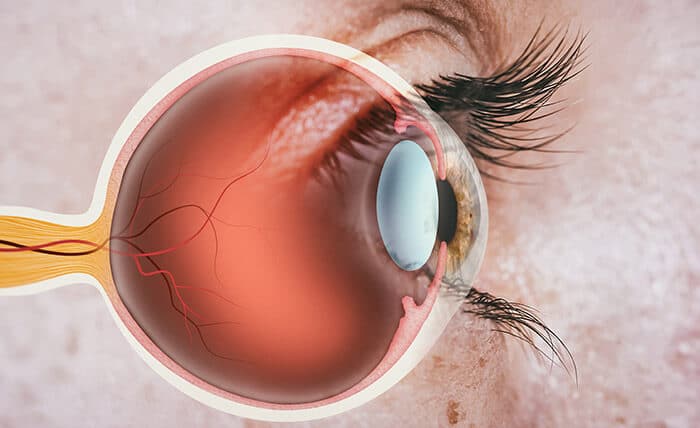At Minnesota Eye Consultants we have a team of renown Cornea Specialists that have a wealth of experience helping patients improve and preserve vision after common cornea disorders and diseases such as fuchs dystrophy, keratoconus, eye infections, and eye injuries.
If you are suffering from corneal problems, schedule an appointment with one of our cornea doctors today. We can discuss a variety of treatment options and surgeries aimed at correcting distorted vision caused by improper functioning of the cornea.
The cornea is the transparent front part of your eye, covering the iris (the colored part) and pupil (the black center). The cornea is often compared to the windshield of a car, as it’s the barrier between the inside of the eye and the outside world.
Images enter your eye as light, then are transmitted and sent to your brain for processing. This is how you see. The cornea allows the image you are looking at to be carried by light waves into the interior of your eye by gathering and focusing visual images. This focusing allows the images you see to be sharp and clear.

Corneal problems can happen to anyone at any age. If something such as disease, injury, or infection damages the cornea, it can become cloudy and warped. A damaged cornea distorts light as it travels into the eye, affecting your vision. It may even be painful. The smoothness and shape of the corneas are vitally important to its proper functioning, as is its transparency. If either the surface smoothness or the clarity of the cornea surface is disturbed, vision becomes distorted.
Depending on the extent of the cornea damage, we offer a variety of surgical and in-office treatments that can help improve your vision. Call our office at 952-888-5800 to request a cornea consult today or request an appointment.
Keratoconus occurs when the cornea changes shape, pushing outward like a cone. A cone-shaped cornea distorts light as it travels into the eye. This may cause you to see blurry or even multiple images. Keratoconus often affects young adults; the cause is not yet known.
Our endothelial cells act as “pumper” cells, helping to keep fluids within the eye maintained at a healthy level. When these cells start to die off, the fluid isn’t pushed through the eye properly and swelling of the cornea can occur.
After surgery, the cornea sometimes becomes swollen and cloudy. As a result, you might experience glare or see images that are blurry, faint, or washed out. The swollen cornea may also develop painful blisters.
Injuries like this can create scar tissue, which is difficult for light to penetrate. You may see very faint or distorted images, or only light and shadows.
Minnesota Eye Consultants is proud to offer patients convenient access to eye care across the Twin Cities. We have 5 locations, each with an onsite ambulatory surgery center (ASC).